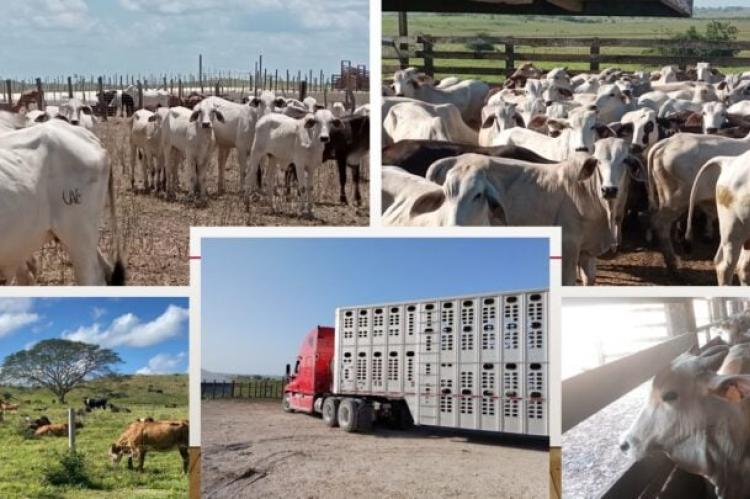Facing the Screwworm Threat: Enhancing Compliance Through Collaboration
By: Omar Silva
Editor: National Perspective Bz – Digital 2024
Belize City: Tuesday, 10th December 2024
Belize’s agriculture sector is under siege as the New World Screwworm (NWS) edges closer to its borders. In response to confirmed cases in Guatemala and Mexico, the Belize Agricultural Health Authority (BAHA) and the Ministry of Agriculture, Food Security, and Enterprise (MAFSE) enacted Statutory Instrument No. 143 of 2024 on November 8, setting stringent measures to prevent, control, and eradicate the deadly parasite.
While the regulations outline mandatory inspections, controlled animal movement, and severe penalties for non-compliance, there are visible gaps—or slack—in ensuring that farmers, transporters, and stakeholders actively participate. A clearer understanding of these issues and actionable steps are vital for Belize to mount an effective defense against this threat.
Understanding the Slack
- Limited Awareness:
Farmers and animal transporters may not fully grasp the severity of the NWS threat. The parasite, Cochliomyia hominivorax, feeds on the flesh of warm-blooded animals, causing devastating health risks and economic losses. However, without widespread awareness campaigns, the urgency of compliance may not resonate with stakeholders.
- Resource Challenges:
Small-scale cattle farmers, who form the backbone of Belize’s livestock sector, often lack access to inspection facilities or funds for permits. For many, the process may seem bureaucratic, time-consuming, and expensive, creating resistance rather than cooperation.
- Operational Gaps:
BAHA and MAFSE are tasked with implementing the regulations but face resource constraints. Inspections, movement controls, and surveillance demand personnel, equipment, and robust communication networks that may be lacking.
- Harsh Penalties Without Support:
Violations of SI 143 carry fines of up to $5,000 or imprisonment for up to three years. These penalties, while necessary to deter illegal activities, may alienate small farmers who feel unsupported in complying with the new measures.
Enhancing Participation
To bridge these gaps, it is essential to implement strategies that foster collaboration and encourage compliance while maintaining the necessary strictness to safeguard Belize’s livestock. Here are key steps:
1. Educating Stakeholders
BAHA and MAFSE should launch a nationwide awareness campaign to educate farmers, transporters, and the public about the NWS threat. Community workshops, local radio broadcasts, and social media outreach can deliver critical information on recognizing symptoms of myiasis and reporting suspected cases.
2. Creating Incentives for Compliance
Compliance must be incentivized, particularly for small-scale farmers. Offering subsidies for health inspections, permits, and other associated costs can reduce the financial burden. Recognizing compliant farmers through public awards or certifications can also encourage others to follow suit.
3. Decentralized Monitoring Through Community Engagement
Involving local livestock associations, cooperatives, and volunteers can decentralize surveillance efforts. Trained community members can assist with inspections and early reporting, creating a shared responsibility model that benefits all stakeholders.
4. Simplifying Processes
Streamlining the compliance process is crucial. Mobile inspection units can reach remote farming communities, reducing the time and effort needed to obtain permits. Additionally, digital platforms for permit applications and updates can eliminate bureaucratic delays.
Proposing an Acceptable Compliance Law
The success of SI 143 hinges on balancing enforcement with fairness. Here’s how the law can evolve to ensure stricter yet acceptable compliance:
- Graduated Penalties: Replace immediate harsh penalties with a tiered approach. First offenses could result in warnings or small fines, with harsher consequences for repeat violations.
- Mandatory Training Programs: Require livestock owners and transporters to attend workshops on NWS prevention. Certification could be tied to the issuance of permits, ensuring that all stakeholders are informed.
- Enhanced Infrastructure: Equip Animal Movement Control Points with modern technology to expedite inspections and ensure thorough compliance checks.
- Transparent Implementation: Publish regular reports on compliance levels, inspection outcomes, and enforcement actions to build public trust and accountability.
A Call to Action
The New World Screwworm poses a dire threat to Belize’s livestock, livelihoods, and food security. Tackling this challenge requires a united front. By addressing the slack, enhancing participation, and refining compliance laws, Belize can not only prevent the NWS from taking hold but also set a precedent for proactive agricultural health management.
BAHA and MAFSE are urging all stakeholders to remain vigilant, prioritize animal health inspections, and report any suspicious cases of myiasis. The fight against the screwworm begins with collective action—let’s rise to the challenge.
Stay informed. Stay compliant. Protect Belize.
- Log in to post comments

